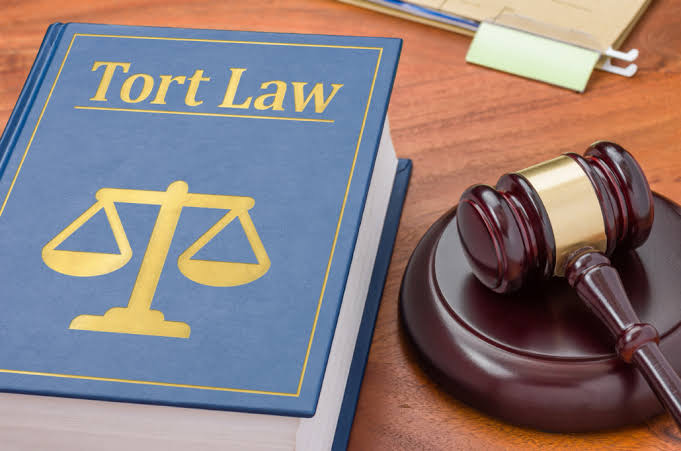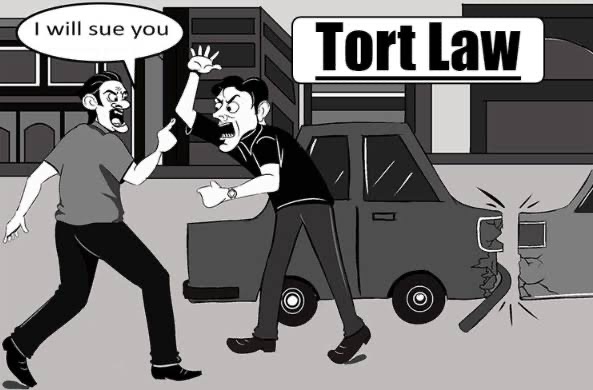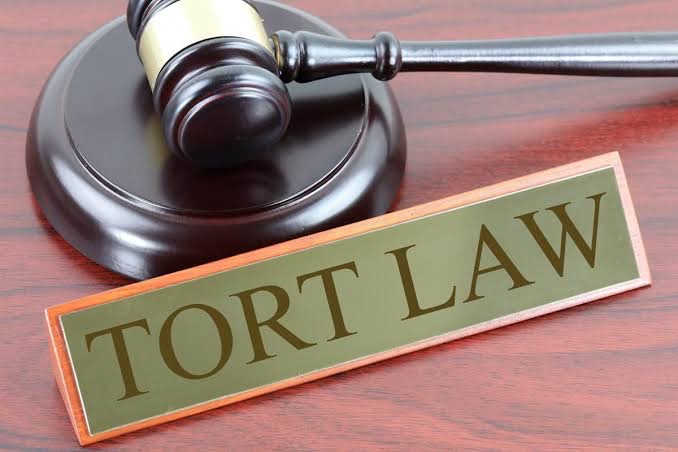TABLE OF CONTEXT:
WHAT IS TORT?
The Law of Tort in Pakistan"
WHAT IS TORT? THE LAW OF TORT IN PAKISTAN.
INTRODUCTION:

The area of civil law known as tort law is concerned with wrongdoings that damage a person's property, reputation, or bodily or mental health. "Tort" is derived from the Latin word "tortum," which means "wrong."
Tort law tries to offer a way for those who have been harmed to seek restitution against the person or entity who caused them injury. It is a legal process that is intended to safeguard persons from the destructive activities of others and to give redress for those who have been mistreated. Tort law may be traced back to early English common law, and it has evolved over time to become a vital component of modern civil law.
DEFINITION:
Tort law is the area of civil law that deals with crimes being carried out by an individual or group that result in damage to another person's person, property, or reputation. It is a legal action launched by one person against another to recover damages for losses incurred as a result of the wrongdoer's behavior or inaction.
EXPLANATION:
Using tort law, those who have been hurt by the conduct of another can receive compensation. The goal of tort law is to strike a balance between the rights of individuals, ensuring that those who have been hurt receive recompense while also being held accountable for their deeds.
TYPES:

There are three primary kinds of torts: intentional torts, negligence, and strict liability.
Intentional torts are unlawful actions that are done with the intent to harm a person, such as battery, assault, false detention, and defamation.
When a duty of care exists and reasonable care should have been taken, it is called negligent behavior. Negligence can occur in a variety of situations, such as car accidents, medical malpractice, and slip-and-fall accidents.
Strict liability is a type of tort where a person or entity is held liable for harm caused by their actions, regardless of whether they intended to cause harm or were negligent. Strict liability often arises in cases involving defective products or dangerous activities.
ELEMENTS:
The following components must be present in order to establish a tort:
The defendant owes the plaintiff a duty of care, which entails that they must act sensibly and responsibly under the circumstances.
Defendant's failure to behave in a reasonable and responsible manner, which caused harm or injury to the plaintiff, is a violation of the defendant's duty of care.
There must be a direct connection between the plaintiff's injuries and the defendant's violation of duty.
The defendant's breach of duty must have really caused the plaintiff's suffering or injury.
CHARACTERISTICS:
The tort law's primary characteristics are as follows:
Under tort law, the victim is entitled to compensation for any losses incurred as a result of the wrongdoer's acts.
Tort law is a subset of civil law, which means that it deals with disagreements between people or businesses rather than criminal offenses that are regarded to pose harm to society as a whole.
Tort law holds people and organizations accountable for their deeds or omissions that hurt other people.
Damages, which are granted to make up for the injury a victim has endured, are the primary remedy in tort law. Injunctions may also be given in specific circumstances to stop the perpetrator from carrying out their detrimental conduct.
Tort law is a crucial element of the law that aims to shield people from damage brought on by other people's conduct. It gives people a way to pursue restitution for damages sustained as a result of wrongdoing on the part of others.
The Law of Tort in Pakistan"
Introduction to the Law of Tort in Pakistan
The law of tort in Pakistan is a branch of civil law that deals with civil wrongs or harm caused to a person's reputation, property, or body. It is a set of legal principles that enable individuals to claim compensation for damages caused by another person's wrongful act, negligence, or intentional harm. The law of tort in Pakistan is governed by common law principles and local legislation that provides a framework for individuals to seek legal remedies for harm caused to them.
Key Concepts of the Law of Tort in Pakistan
There are several key concepts associated with the law of tort in Pakistan. These include:
-
Duty of Care: A person has a duty of care towards others to avoid causing harm or injury to them. This principle is particularly relevant in cases of negligence, where a person's failure to take reasonable care can result in harm to another.
-
Breach of Duty: If a person fails to fulfill their duty of care towards another and causes harm as a result, they may be liable for breaching their duty.
-
Causation: To establish liability under the law of tort in Pakistan, it must be shown that the defendant's actions caused the plaintiff's harm. This can be established through the use of expert evidence or other forms of evidence.
-
Damages: If liability is established, the plaintiff may be entitled to compensation for damages suffered as a result of the defendant's actions. This can include compensation for physical injuries, emotional distress, and financial losses.
Types of Torts in Pakistan
There are several types of torts recognized under the law of tort in Pakistan. These include:
-
Negligence: Negligence occurs when a person fails to take reasonable care and causes harm as a result. This can include medical negligence, road accidents, and other forms of negligent behavior.
-
Defamation: Defamation occurs when a person's reputation is harmed by false statements made by another person. This can include slander (spoken statements) or libel (written statements).
-
Nuisance: Nuisance occurs when a person's use of their property interferes with another person's enjoyment of their property. This can include noise pollution, air pollution, and other forms of interference.
-
Trespass: Trespass occurs when a person enters another person's property without permission. This can include physical trespass (entering a property) or intellectual property trespass (using someone else's intellectual property without permission).
Conclusion
In conclusion, the law of tort in Pakistan is an essential legal field that provides a framework for individuals to seek legal remedies for harm caused to them. It covers a wide range of civil wrongs and principles that enable individuals to claim compensation for damages caused by another person's wrongful act, negligence, or intentional harm. The law of tort in Pakistan is based on common law principles and local legislation and provides an effective means for individuals to seek justice and hold wrongdoers accountable for their actions.



You must be logged in to post a comment.